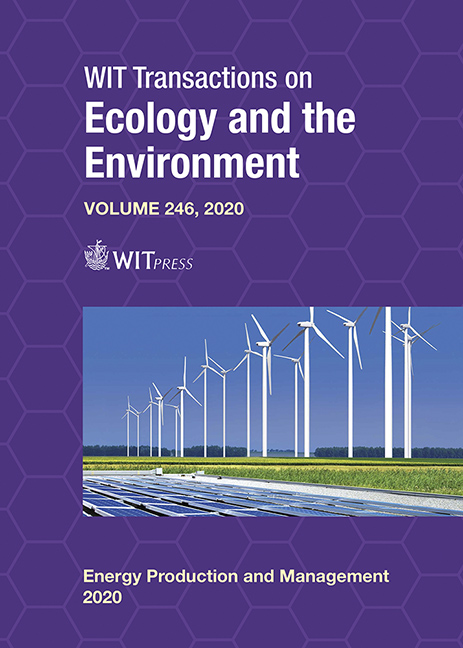APPLICATION OF MODIFIED GASOLINE TO INCREASE ENERGY EFFICIENCY AND ENVIRONMENTAL PARAMETERS OF VEHICLE OPERATION
Price
Free (open access)
Transaction
Volume
246
Pages
6
Page Range
3 - 8
Published
2020
Paper DOI
10.2495/EPM200011
Copyright
WIT Press
Author(s)
ELENA MAGARIL, ROMEN MAGARIL
Abstract
The implementation of the strategy for the transition of mankind to consciously regulated development is inextricably linked with the requirements for reducing the energy and resource intensity of the economy. Automobile transport is one of the main consumers of hydrocarbon fuels, which, with the growth of the global car fleet, inevitably causes negative consequences for the environment, and the environmental load increases, even considering the progress in the quality of motor fuels. A radical change in the structure of the global fleet with the transition to the use of “green” types of fuel and energy is impossible to implement in short order and is not rational from the economic point of view. An urgent task is to search for the diversified approaches using new-generation technologies for the environmentally friendly adaptation of the use of traditional motor fuels and to reduce the energy intensity of the transport process. The aim of the work is to study the possibilities of increasing fuel efficiency and improving cars’ environmental performance using gasoline modified by the introduction of a highly effective nano-additive. The tests carried out on the effect of the introduction of the nanoadditive in the conditions of suburban driving demonstrated a decrease in the specific gasoline consumption up to 14.08%. This reduction in fuel consumption is accompanied by a corresponding reduction in emissions of toxic substances and greenhouse gases. It was found that improving the combustion process of the fuel with the introduction of the additive reduced the levels of noise and vibration, thus reducing pollution of the acoustic environment. The use of gasoline modified by the introduction of nano-additives will reduce the energy intensity of the transport process and will contribute to improving the environmental situation.
Keywords
energy efficiency of transport, conventional motor fuels, nano-additive, modified gasoline, acoustic pollution, environmental safety of cars





